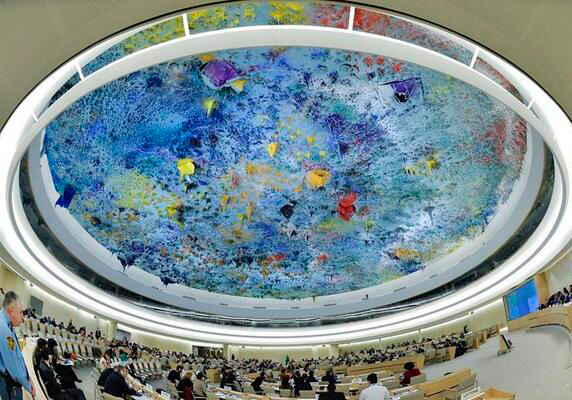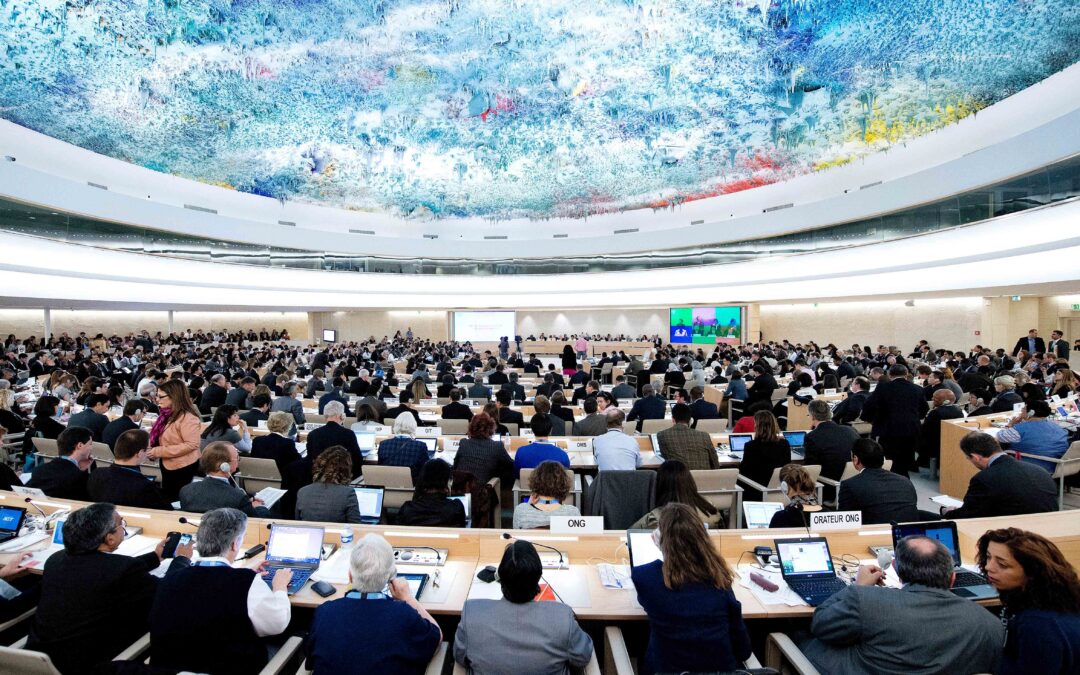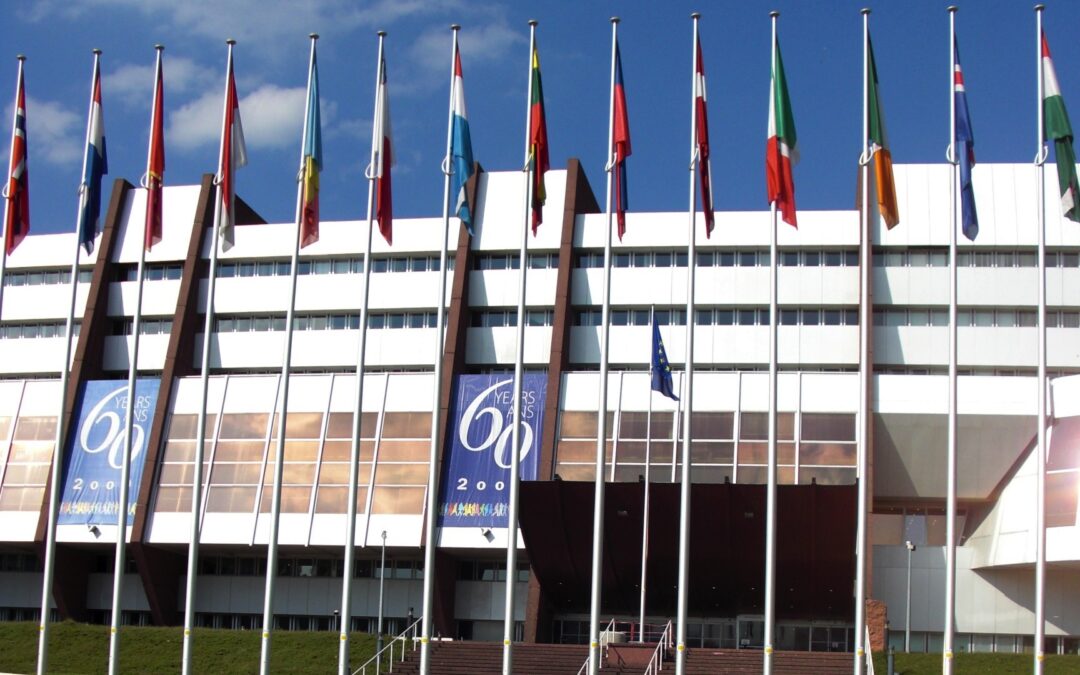
Mar 16, 2016 | Advocacy, Non-legal submissions
The ICJ today delivered an oral statement to the UN Human Rights Council, on the Universal Periodic Review of Nepal.
“The ICJ is concerned that the Government of Nepal has yet to implement many of the recommendations it accepted during the first UPR cycle, including several that reflect its international legal obligations regarding the new Constitution, investigation and prosecution of serious crimes, and establishment of credible transitional justice mechanisms.
The police continue to refuse to investigate conflict-era cases even when explicitly ordered by courts to do so. The transitional justice commissions do not enjoy the support of the victims and human right organizations, a year into their two-year mandate. Victims’ rights to truth, justice and reparation are not being respected, protected and fulfilled.
More than 59 persons, including 10 police personnel, were killed during recent protests, but as yet we are not aware of any impartial and effective investigation of the killings.
Many serious crimes under international law, including torture and enforced disappearance, still are not recognised as crimes under the Nepali penal code.
The ICJ therefore calls upon the Government to reconsider its position, and to accept and implement the UPR recommendations arising from this cycle, relevant to:
- Strengthening the constitutional protection of human rights;
- Amending the Truth and Reconciliation Commission Act, 2014, in line with international standards and Supreme Court orders;
- Establishing a credible transitional justice process;
- Preventing, investigating, and responding effectively to any use of excessive force by security forces;
- Ensuring prompt, independent and impartial investigations and, prosecution in cases of unlawful killings, whether the perpetrators are security forces or protesters;
- Amending the Penal Code to explicitly incorporate serious crimes under international law; and
- Ratifying relevant treaties, and accepting requests for visits of the Working Group on Enforced Disappearances, and Special Rapporteur on the right to truth.”
A more detailed written statement may be downloaded in PDF format here: HRC31-Advocacy-WrittenStatement-Nepal-2016

Mar 15, 2016 | Advocacy, Non-legal submissions
The ICJ today delivered an oral statement on the deteriorating situation for human rights in Thailand, to the UN Human Rights Council in Geneva.The statement may be downloaded in PDF format here: HRC31-Advocacy-OralStatement-Thailand-2016

Mar 14, 2016 | Advocacy, Non-legal submissions
The ICJ today joined the International Bar Association’s Human Rights Institute in an oral statement during the interactive dialogue with the UN Special Rapporteur on the situation for human rights in Myanmar.The statement focussed on the situation of the legal profession and judiciary.
It is available to download in PDF format here: HRC31-Advocacy-OralStatement-SRMyanmar-2016

Mar 11, 2016 | Advocacy
The ICJ, Amnesty, ECCJ and FIDH welcome the adoption of the Recommendation of the Committee of Ministers to member States on human rights and business (the Recommendation) on 3 March 2016.
This is the Council of Europe’s first inter-governmental instrument on business and human rights.
Adopted by the organization’s highest decision-making body, the agreement by all 47 Council of Europe member States is a significant achievement.
If adequately implemented, the Recommendation can contribute to an enhanced system of legal accountability of business enterprises involved in human rights abuses and access to effective remedy for those whose rights have been affected.
EU-coe_recommendation-Advocacy-2016-ENG (full text in PDF)

Mar 11, 2016 | Advocacy, Non-legal submissions
The ICJ today made an oral statement at the UN Human Rights Council, on negotiations for a treaty on business and human rights.
The statement welcomed the report of the Chairperson Rapporteur of the first session of the Intergovernmental Working Group on a Legally Binding Instrument on Transnational Corporations and other Business enterprises and Human Rights, and thanked Ambassador Espinosa for her effective leadership of the process.
The ICJ reiterated its support to the process of elaboration of an international legally binding instrument. A treaty, together with other existing instruments and coupled with effective and robust national action, has the potential of significantly contributing to advance the protection of human rights in the context of global business operations. The ICJ called on States to ensure that the process results in an instrument that addresses the most pressing challenges in legal accountability of both national and transnational businesses and access to justice and also provides for the crucial international supervisory and monitoring mechanisms to enhance its effectiveness.
Hundreds of civil society organizations, mostly from the grassroots level, participated in the first session of the IGWG and are active in the whole process. The ICJ urges the United Nations and member States to facilitate civil society participation, including from the global south. Despite the significant participation of many States and business associations, the ICJ believes that more should be done to encourage broad and active stakeholder participation. The ICJ calls on states that are home to large transnational corporations to take part in the deliberations of the working group.
The ICJ believes a legally binding instrument will be the necessary complement to the Guiding Principles on Business and Human Rights, and other instruments. The drafting process should build on some of the accepted key principles and processes, including on the results of the OHCHR project on Corporate Accountability and Access to remedy, cover the conduct of all business enterprises and also contain provisions which address the particular regulatory and jurisdictional challenges pertaining to transnational companies.

Mar 10, 2016 | Advocacy, Non-legal submissions
The ICJ today delivered an oral statement on counter-terrorism legislation in these countries, in an interactive dialogue at the UN Human Rights Council with the the Special Rapporteur on the promotion and protection of human rights and fundamental freedoms while countering terrorism.
The text of the statement follows:
COUNTER-TERRORISM LEGISLATION IN EGYPT, TUNISIA AND PAKISTAN
10 March 2016
Mr President,
The International Commission of Jurists (ICJ) welcomes the attention given by Special Rapporteur Ben Emmerson, to defective counter-terrorism legislation that facilitates violations of human rights, as reflected for example by communications on Egypt, Tunisia and Pakistan in the Communications Report of Special Procedures (A/HRC/31/79).
Numerous counter terrorism laws promulgated or applied in these and other countries include overly broad or imprecise definitions of terrorism-related offences. These extend the laws’ reach beyond acts of a truly terrorist character. Such laws can be and are abused or misapplied to criminalize the legitimate and peaceful exercise of fundamental rights and freedoms.
Further, these laws provide sweeping immunities that contribute to pervasive impunity for unlawful killings by security forces.
These laws also facilitate violations of the right to liberty and fair trial rights and insufficiently safeguard against abuses in detention. In Tunisia a person can be held in police custody without being brought before a judge for up to 15 days. In Pakistan, suspects can be held in preventive detention without charge, and without being brought before a judge, for up to 90 days.
Egypt and Pakistan continue to use military courts to conduct unfair trials of civilians in terrorism cases, contrary to international standards. At least eight civilians sentenced to death in secretive trials by military courts in Pakistan have been hanged since January 2015. “Expedited” procedures in terrorism circuit courts in the Egyptian civilian system also give rise to fair trial concerns.
The ICJ invites the Special Rapporteur to comment on measures or mechanisms that states, inter-governmental organisations, and civil society can take to help ensure that states such as Tunisia, Egypt and Pakistan repeal or amend counter-terrorism legislation to bring it into line with their international human rights obligations and commitments.










